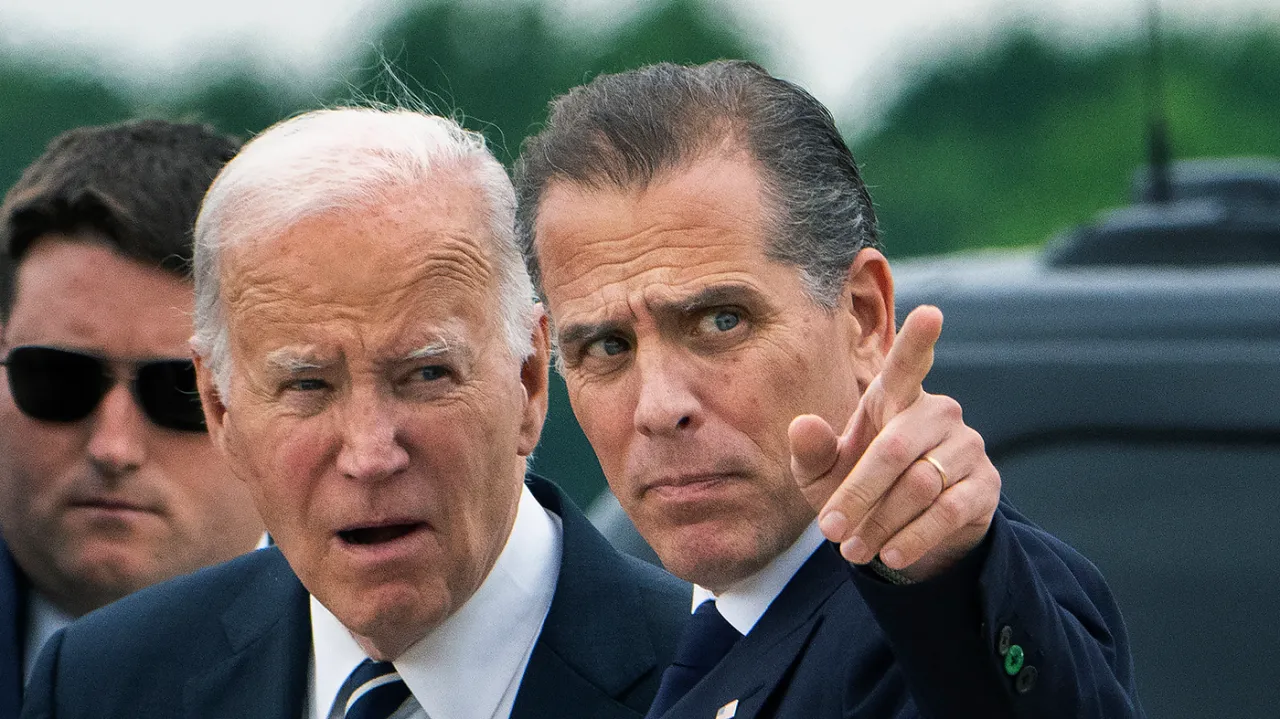President Joe Biden granted a pardon to his son, Hunter Biden, for firearms and tax convictions on Sunday, despite having previously pledged not to use his presidential powers to grant clemency to family members.
Biden defended his decision, arguing that his son had been “singled out” and “selectively, and unfairly” prosecuted because of his family name.
Biden stated, “They’ve tried to break Hunter, and in doing so, they’ve tried to break me. There’s no reason to believe it will stop here. Enough is enough.”
The President emphasized that throughout his career, he had prioritized honesty, believing that Americans are fair-minded. He explained, “Here’s the truth: I believe in the justice system, but as I’ve reflected on this, I also believe that raw politics has corrupted the process, leading to a miscarriage of justice. Once I made this decision, I saw no reason to delay it any further.”
Biden expressed hope that Americans would understand why a father and a president would make such a decision.
The pardon comes weeks before Hunter Biden was set to face sentencing for a series of felonies related to making false statements about his drug use on a gun background check form and failing to pay at least $1.4 million in taxes.
This decision is likely to spark debate about the independence of the U.S. justice system, especially amid concerns over potential political interference. Critics of President-elect Donald Trump have warned that he may use law enforcement agencies to target political rivals. Trump, who faces multiple criminal cases but has been unlikely to face severe legal consequences, condemned Biden’s pardon as an abuse of power.
“Does the pardon given by Joe to Hunter include the J-6 Hostages, who have now been imprisoned for years?” Trump posted on his social media platform, Truth Social, referring to those convicted in connection with the January 6, 2021, Capitol riot. “Such an abuse and miscarriage of Justice!”
Hunter Biden faced a potential sentence of up to 25 years in prison for his tax offenses and 17 years for his firearms convictions. However, federal sentencing guidelines would likely have resulted in a much lighter punishment.
Special Counsel David Weiss, appointed by Attorney General Merrick Garland to investigate Hunter Biden, filed the charges after an earlier plea deal collapsed under a judge’s scrutiny.
In justifying the pardon, President Biden argued that people are rarely prosecuted for filling out a gun purchase form incorrectly, and those who pay their taxes late generally face non-criminal resolutions. Biden also criticized Republican efforts to use his son’s legal troubles to damage him politically.
“Republicans, who targeted Hunter’s overseas business activities in their failed impeachment effort, used his personal issues to attack me and my re-election,” Biden said. “When a carefully negotiated plea deal fell apart in court, many of my political opponents in Congress claimed credit for applying pressure on the process.”
Biden added that if the plea deal had been upheld, it would have represented a fair and reasonable resolution to Hunter’s legal issues.
The pardon not only covers Hunter Biden’s tax and firearms convictions but also any other offenses he may have committed from January 1, 2014, through December 1, 2024.
In June, President Biden had firmly ruled out pardoning his son. “I will abide by the jury decision,” he said at the time. “I will not pardon him.” The White House had repeated this stance as recently as November 8, when press secretary Karine Jean-Pierre stated, “Our answer stands, which is no.”
On Sunday, Hunter Biden issued a statement expressing remorse for his past mistakes, which he said had been “exploited to publicly humiliate and shame me and my family for political sport.” He thanked the president for the clemency, saying, “In recovery, we can be given the opportunity to make amends where possible and rebuild our lives.”
“I will never take the clemency I have been given today for granted and will devote the life I have rebuilt to helping those who are still sick and suffering,” Hunter Biden added.
Under the U.S. Constitution, the president holds broad authority to grant clemency to individuals convicted of federal crimes. Previous presidents have used this power to benefit family members and political allies. For instance, in 2020, President Donald Trump pardoned Charles Kushner, the father of his son-in-law Jared Kushner, after he served time for tax evasion, illegal campaign contributions, and witness tampering. Similarly, in 2001, President Bill Clinton pardoned his half-brother, Roger Clinton Jr., who had served prison time for attempting to sell cocaine to an undercover officer.

